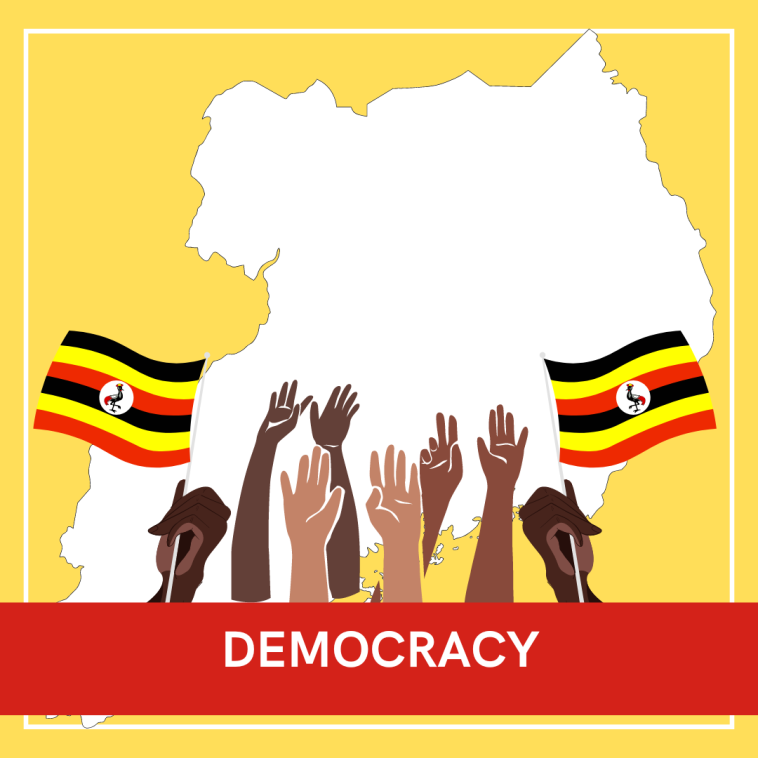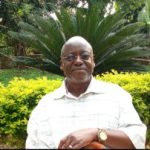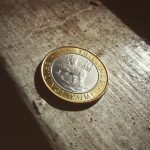On May 27, 2024, I wrote an article titled How Opposition Helped Tibuhaburwa Museveni to Build Dynastic Rule in Uganda. The article was published in many media outlets, including MUWADO, and widely circulated. There were many responses to the article, which sought to generate discussion on the way forward for multipartyism or pluralism in Uganda.
Despite the many regular elections over the last 28 years of NRM rule, Uganda has been systematically experiencing de-democratisation, not democratisation. This is exemplified by the spreading and intensifying militarisation of everything conceivable. Not long ago, I wrote an article titled The Military Capture of Uganda’s Civic Space, which was published by many media, including the Uganda Radio Network and Uganda Today. I showed that civic space in Uganda has systematically shrunk as the NRM Government hoodwinks Ugandans with elections while taking over all civic spaces in the country. I stated that the military capture of Uganda’s civic space, combined with the revamping and spread of the grass culture all over the country, is the most dangerous state facing Uganda today and tomorrow. Therefore, although the impression being created that homosexuality is the most dangerous threat facing Uganda is diversionary. Military capture and the grass culture threaten whole communities en masse, whereas homosexuality targets individuals, but where traditional cultures are strong, it has little chance of consummating whole communities and peoples.
In his article, How the Army is Swallowing the Ugandan State, Liam Taylor (2022) showed that when civilian institutions are systematically undermined by power, the military steps in.
President Tibuhaburwa Museveni may be an elected President, but he remains 100% military in heart, mind, and actions, and he is the champion of the de-democratisation and militarisation processes in Uganda. He takes full advantage of the fact that the Uganda Constitution 1995, whose making he presided over, invests all power and authority over everything – underground and above-ground – including power and authority – in the hands of the institution of the President, which he has captured for the last 38 years.
The only thing that shows that Uganda does not entirely belong to the military are the guided regular elections, which President Tibuhaburwa Museveni and his Party must win at all costs – including blood and iron. However, because of the emphasis on blood and iron in the elections, the elections are militarily guided and controlled.
Truly, the rulers believe power flows only through the barrel of the gun and is civilised by-elections, which means little to the people, communities, and society since all these are under military grip and control. Indeed, as Taylor and I showed, the military has completely invaded and penetrated all civic spaces and institutions, ultimately making the civilian population subject to a formidable military machine.
The question is, how did we come to this?
In this article, I want to build on my previous article “How Opposition Helped Tibuhaburwa Museveni to Build Dynastic Rule in Uganda.” I will focus on the role of the Democratic Party (DP) in Uganda’s murky politics. By murky, I mean dark and gloomy. Therefore, our politics has been dark and gloomy. The assumption here is that DP has been at the centre of translating Uganda’s politics into a dark and gloomy mix. I will show how. Let me begin with today.
Today, the Democratic Party is at the forefront of helping President Tibuhaburwa Museveni to manipulate the Constitution of Uganda 1995, whose making he presided over and promised that it would stand the test of time. Over the last 29 years, he has reduced the accountability controls over the Age Limit of a President and the Presidential Term Limits to enable him to rule Uganda as if he were a Life President. He has used the NRM majority in the Parliament of Uganda to achieve this feat, ensuring there is no alternative to him in terms of leadership and governance of Uganda. Now, how is he using the DP to ensure that there is no threat to his power and political domination of Uganda by his family?
Simple. The President reached an agreement with the President of DP, the same way he did with the President of the Uganda Peoples Congress (UPC), to cooperate with him and his party politically, which meant that DP and UPC would not contradict him in his political choices. During this time, when the whole country has raised its collective voice against corruption and the corrupt, the voices of DP and UPC – the oldest Parties in Tibuhaburwa Museveni/NRM and the leaders of DP and UPC. For UPC, the President gave a ministerial post to the wife of its President, Jimmy Akena Obote. For DP, the President gave the Party President, Norbert Mao, the influential Ministry of Justice and Constitutional Affairs.
Currently, President Tibuhaburwa Museveni wants to free himself from the voters of Uganda, who ostensibly have elected him since 1996 to the Presidency of Uganda consistently and persistently. The person he has chosen to help him free himself is the President of DP. He has tasked him to initiate and see through constitutional changes before the 2026 General and Presidential elections that will institutionalise the election of the President of the majority, which is President Tibuhaburwa Museveni’s Party, in the Parliament of Uganda. Norbert Mao has cast himself as ready to carry out the task with no qualms about moving ahead, although he knows a change of law towards electing the President would disenfranchise Ugandans. He knows that the majority in Parliament, once elected, no longer pride in representing the public interest or the interests of their constituents, but their own interests and, most importantly, the interests of the President of Uganda; principally power retention and hereditary politics.
If Norbert Mao succeeds in ensuring that constitutional means disenfranchise Ugandans in the interest of power, it will be nothing but a continuation of the Democratic Party serving those who capture power or want to retain power at the expense of the genuine need of Ugandans for freedom, democracy, human rights, development, and transformation of their circumstances and lives. Currently, all these are in crisis.
There is a widespread perception among Ugandans that since independence, these virtues have evaded them, mainly due to bad governance, militarism, and the erosion of freedoms, democracy, and various rights. Corruption has always confounded these pollutants of independence, sovereignty, and the development of the country and people.
When President Tibuhaburwa Museveni captured the instruments of power through the barrel of a gun in 1986, numerous Ugandans, who in the past professed membership of the DP, were behind Legal Notice No.1 of 1986, even if they knew the capture of power largely involved former refugees and others with no cultural, historical, and biological roots in Uganda. They did not stop there. They were behind the following:
- Movement Act
- Article 269 of 1995
- POMA: Public Order Management Act
Besides, I cannot fail to mention:
- The complicity of DP during the bush war in LUWERO TRIANGLE with one leg in PARLIAMENT and one leg in the bush.
- DP affiliated or leaned towards rebel groups in the bush such as Uganda Freedom Movement (UFM), FEDEMU, Uganda Freedom Fighters (UFF), and later National Resistance Movement (NRM); not institutions promoting democracy but the chaos that lays a fertile ground for dictatorship.
- DP lied and raged propaganda over the 10th December 1980 elections that were rigged in favour of UPC.
- DP failed to follow up on any petitions.
- DP’s political elements, such as Andrew Benedicto Ademola, who was Uganda’s first black diplomat, conspired to effect and make effective the 27th July 1985 coup that ushered in the military Junta of the Okellos (i.e., Basilio Okello and Tito Okello)
- DP’s bigwigs opted to serve the gunmen in 1985 in the typical way they served IDI AMIN in the 1971 Coup and later the NRM/A coup in 1986, thereby undermining building democracy through civic means.
- DP bigwigs were fully INVOLVED in the 1985 Nairobi Peace Talks (which Ugandans called Nairobi Peace Jokes) that delivered a military pact between the Military Junta of the Okellos with the NRM/A, thereby laying the ground for other political parties/forces being switched off completely.
For the most part, politics or politicomilitarism, in which DP has been involved during most of its political history, has been to ensure that the UPC is marginalised or is deactivated from the body politic of Uganda and never takes power again in Uganda. This is likely to undermine national-democratic liberation, which has been a core idea in the political manifestation of the UPC since the latter part of colonial rule in Uganda.
Therefore, DP has played a critical role in the murky politics. If Uganda has experienced constitutional decay, militarisation of anything conceivable, and de-democratisation, DP has, unfortunately, been integral to these processes, consciously or unconsciously.
Currently, although there is seeming multipartyism or pluralism, the truism is that in practice we have no-party rule because the ruling clique in Uganda has relapsed back to the period before 1996 when there was no real challenge to the National Resistance Movement (NRM) with its strongman Yoweri Museveni (previously Yoweri Kaguta Museveni, now Yoweri Tibuhaburwa Museveni). There are political parties – including the old parties (DP, UPC), National Unity Platform (NUP), Forum for Democratic Change (FDC), and others – but just like in the past, they cannot operate beyond certain limits set by the politicomilitary regime, just as was the case in the past. If they do, they are pounced on by the military and police as desired by President Tibuhaburwa Museveni – today as in the past.
The Ten Million Dollar Question: How will Ugandans, through their political parties or outside them, free themselves from President Tibuhaburwa Museveni and his bush-oriented NRM?
One thing seems to be true. Ugandans are neither leading nor governing themselves. People with roots and origins elsewhere are governing and leading them for interests that have nothing to do with Ugandans and their country. This is what military capture of a country means. All spaces of human manifestation in all spheres of life are taken by others, and the owners of the country are compelled to live as internal refugees or slaves or else exported out like commodities to energise the foreign economies through external slavery as in the past. Those in power will cast this as employment.
People such as Yoga Adhola would say Uganda needs a revolutionary situation to emerge for us to fully capture our country and the instruments of power back to ourselves and reroute the country from the wrong political line President Tibuhaburwa Museveni has set it on for his selfish interests of power and exploitation of resources. But when and how will that present itself?
For God and My Country
Further Reading
- Oweyegha-Afunaduula (2024). “How Opposition Helped Tibuhaburwa Museveni to Build Dynastic Rule in Uganda.” MUWADO, May 27, 2024, https://muwado.com/politics-how-opposition-helped-tibuhaburwa-museveni-to-build-dynastic-rule-in-uganda/?v=1db208cbcff2
- Oweyegha-Afunaduula (2024). The Military Capture of Civic Space in Uganda. Uganda Radio Network, March 24, 2024, https://ugandaradionetwork.com/s/the-military-capture-of-ugandas-civic-space/
- Oweyegha-Afunaduula (2024). The Military Capture of Uganda’s Civic Space Yesterday and Today. 25 March 2024, https://ugandatoday.co.ug/the-military-capture-of-ugandas-civic-space-yesterday-and-today/
- Taylor, Liam (2022). How the Army is Swallowing the Uganda State. FP, August 15, 2022, https://foreignpolicy.com/2022/08/15/uganda-museveni-military-army-state-power/
This post was created with our nice and easy submission form. Create your post!








